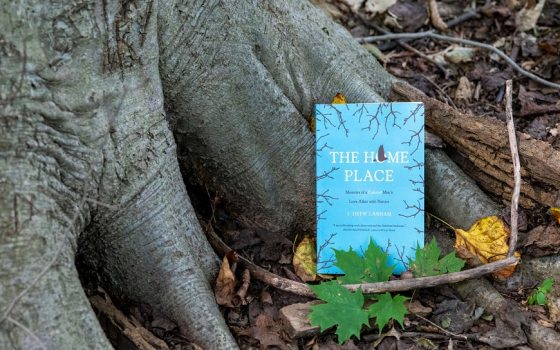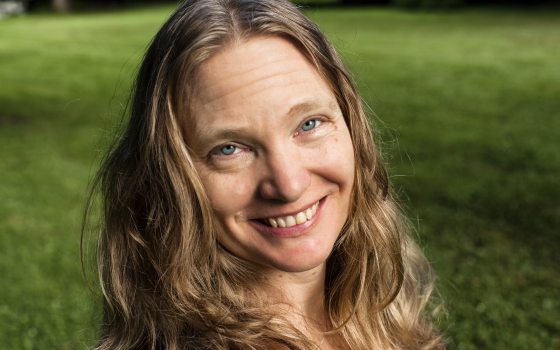Editor's Note: Please join us for two free upcoming virtual Community Read discussions. On May 4, 2021 at 6:30 pm, engage in our Birds and Birding virtual event with J. Drew Lanham, Mya Thompson (author of our young readers’ Community Read title Ruby’s Birds), and Wingyi Kung of The John Heinz National Wildlife Refuge. Registration is required. On May 11, 2021 at 6:30 pm, join us online for Artists on Storytelling with Lanham and master storyteller and creator of Voices in the Landscape Charlotte Blake Alston. Registration is required.
As part of our Community Read program—now in its eighth year of engaging readers and starting conversations about literature focusing on the natural world—we are so proud to partner with dozens of public library branches in the surrounding region, plus local museums, gardens, conservation organizations, and more to share these annually chosen books and present programs to further explore their themes. With more than 240 programs on the Community Read calendar for 2021, this year we are delighted to discuss finding a passion for nature and what can become of that spark … an idea that’s wonderfully explored in our 2021 Community Read adult title, The Home Place: Memoirs of a Colored Man’s Love Affair with Nature, written by Clemson University Professor of Wildlife Ecology and Master Teacher J. Drew Lanham. Lanham is a lifelong birder, naturalist, and self-described hunter-conservationist, and his memoir focuses on the origins of those passions, the many lessons learned along the way, and much more. We had the pleasure of recently speaking with Lanham about his writing, how interacting with nature has affected him this past year, and the spark for his love affair with nature.
“I am a man in love with nature” is the opening line of your book. What was your spark as a young person for your love of birds and nature?
My mother was a biology teacher, my father was an earth science teacher, and we grew up on a farm in the middle of the national forest. I had that nature and that nurture. Then, spending so much time with my grandmother—who I write about quite a lot in the in The Home Place. Mamatha was unique in that I saw her daily, interacting with nature in these ways that I think imprinted me. I was sort of like the little gosling following along behind, being imprinted by what I saw. She was constantly in her yard digging. She was talking about birds, calling them by names that many people know—red bird, for example, or Blue Jay, but then birds like rain crows which are Yellow Billed Cuckoos, or cat owls which are Great Horned Owls. I learned her ornithology, and her ornithology became my ornithology. She was the first person I ever saw feed birds, by taking a handful of grits out of the bag and she would toss them out in the backyard to what she called snowbirds. There were juncos and sparrows, and I would watch these flocks of birds pick at this grit. She threw food to the birds because she said she pitied them when it was cold, that the birds needed it. That was a critical spark for me, seeing that interaction and being steeped in it. To have grown up in that world and not to somehow be impacted by nature would have been a travesty.
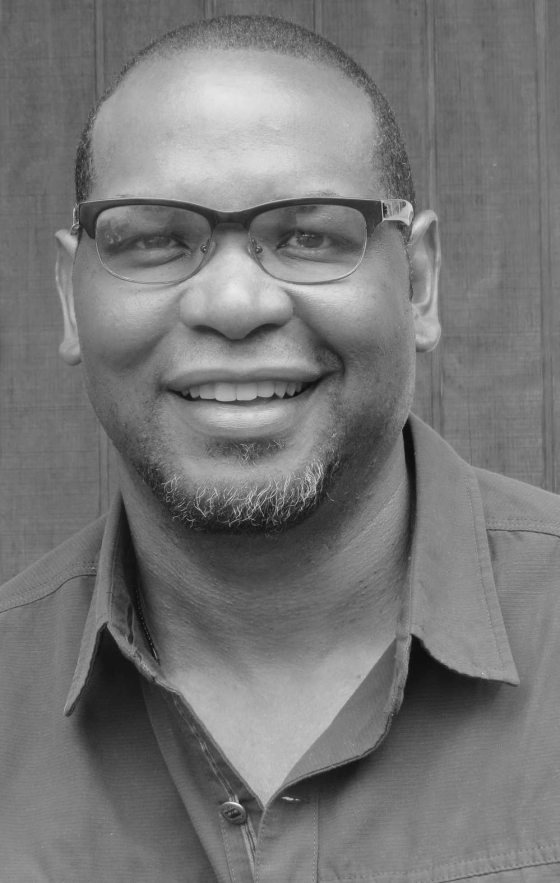
Aldo Leopold’s A Sand County Almanac was our first Community Read book in 2014. You’ve written that Leopold is a strong influence on your views of nature conservation and the human connection to land. Could you please discuss that influence?
I first came across A Sand County Almanac in my brother's room. It had these geese honking on it, and I had already been bitten by the bird bug, so anything that I saw with birds on it was going to attract my attention. I remember flipping through it and seeing these illustrations of nature that really struck me, but then I read bits and pieces of it and it struck again. If we're primed in the right way, it doesn't take much to send us on our way. I was maybe 12 or 13 years old. I didn't pick up A Sand County Almanac again until I was probably 19 or 20, but there was instant recall there. As I read Leopold, I relived the life that I had lost, as we lost the family farm after my father died. It stuck in ways to make me remember all that made me who I am, and I had these dreams in some ways of almost being Leopold, of getting back to the land and being able to roam it, being able to care for it as he did—I still do. That powerful influence really was closely aligned with how I had been raised, and so much of what Leopold wrote, I understood.
I could see some of Leopold in my father, even though I don't think he ever read A Sand County Almanac. There were these ethical acts towards nature and towards the land that I saw in in Daddy and it was sort of like a validation. I can't think of a day that I don't think about Leopold, or that I'm somehow including bits and pieces of quotes. Having a chance to be active with the Leopold Foundation as a board member for many years, knowing that that organization was furthering this land ethic or ideas of land ethic. Having a chance to visit The Shack and seeing a wolf track in the sand on the river. All of that has come into this place of compounding my love for land and Leopold.
How has interacting with birds and nature affected your experiences in the past year of pandemic and racial injustice and political turmoil?
It's been a saving grace in many ways. You know, the birds haven't been quarantined. I've always lived vicariously through birds and through their flight and their capacity to be free, and none of that changed. All that was really intensified during the pandemic. To sit in my backyard and to appreciate the birds that are always there, [like] the Carolina wrens and the cardinals. Getting to know them in this deeper way helped me to reappreciate home, as I think many of us have had to do. But then, as the seasons change, and seeing birds come from very far away, that they somehow find my yard is astounding to me, and it's expanded me beyond quarantine to appreciate the capacity of birds to save us and in many ways for us to live through birds. For us to see the world through birds, to be inspired by them. I think I've probably tripled the number of bird feeders that I have. Now there are six feeders out in the front yard, and I’m watching the ruby-crowned kinglets come to the suet feeder, or the pine warblers, the cardinals, the house finches, or the purple finches. I'm still hoping for evening grosbeaks. All of that has made the quarantine bearable. And to see these birds come and go, and to know that maybe I'm in some way helping them survive is good for my heart.
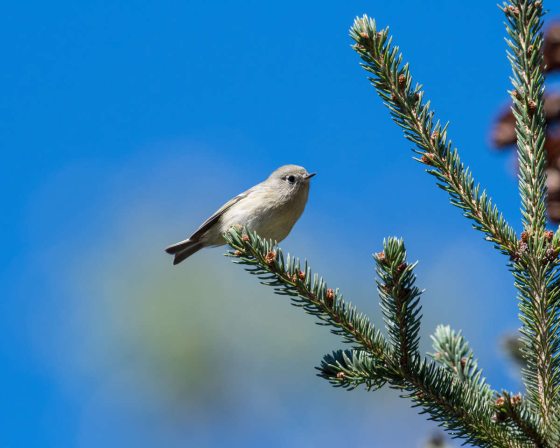
You’re an academic in the sciences. What drew you to writing poetry and literary essays, and your memoir? What do you gain from expressing your thoughts in these formats?
Writing as a scientist is important, critical work, but it's also very formulaic. You're not creating as a scientist, you're reporting. That reporting is critical to our understanding of how things work or why they work sometimes. The creative side allows us to get into a different segment of our brains. Even as I was reporting the data and teaching students about the science, what was missing was the inspiration. None of us were telling the students why we did the science. It's easy to say, “I do the science because I want to know,” but really that takes me all the way back to that point in time of being a boy on the Home Place and seeing a mud puddle and then wondering if the mud puddle would exist long enough for those tadpoles to become frogs. All the data in the world that reports those tadpoles and their development towards froglets can't tell how that makes us feel in our hearts as we watched their world shrink. There was no science that could describe the feeling that I had, so I wanted students, and the world, to know why I did the science in the first place. It was because of a love for nature, and there are not very many scientific journals, at least in the wildlife profession, that publish on love. I want people to understand how critical the science is, but I also want them to understand how just extraordinary caring is. How that carries us to a different place and maybe makes us want to do science as a career, because certainly being a scientist doesn't get you great riches. I like to say that it enriches one's life, and I'm about life enrichment. I think creative writing enriches it in a different way as well.
Through your writing and your academic career, you are encouraging people of color to appreciate the outdoors and maybe follow a career path to work with nature. How important is this to your life's work and your legacy?
It’s extremely important. I have a project with one of my mentors, in north Alabama. A big part of that project is bringing in black students to understand that landscape in all sorts of ways. To be able to take ecological data, but then also to understand the cultural interactions with that landscape historically and in the present, and to blend those together. I think if we continue to study nature in a vacuum, if it's only the far away wild place that only a few privileged people can get to, then we're going to have to deal with nature in bell jars, and I don't think it should be that way. Understanding the prisms through which we see nature, understanding how our life’s experiences that can be colored by the hue of our skin or our ethnicity or some other cultural value—those bend how we see nature and we can only have fuller participation if we pay attention to how others see. It's a matter of really broadening the field of view from not just straight in front of us, we also want to see the periphery. We want to understand the context in which things exist. You can’t understand context unless you see the big picture. For me, in terms of not just current work but also legacy, it is hopefully having some influence on other people wanting to do this. It's fun, it's fulfilling, and I think it carries us into a different realm of being spiritually. I don't tend to talk about that a lot, but I think from the point of view of understanding your place, as Leopold says—in keeping all the parts as you intelligently tinker, or an understanding that you're not separate and apart from nature but a part of nature, that gives us some degree of empathy. Ego reduction. And hopefully, love, such that we care not just for the Earth but for one another in a kinder way that enables us to go forward. That's about the most important thing there is, especially now.
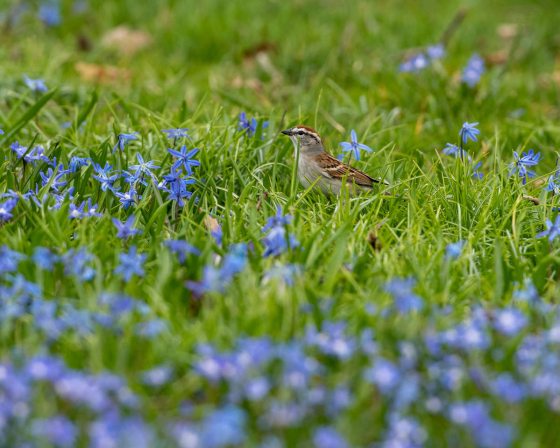
What is coming up next for you? Do you have any projects in the works?
I've got another book in the works called Range Maps: Birds, Blackness, and Loving Nature Between the Two. It's a deep dive into what I call the eco-psycho-socio nature of birds. Each chapter is about a different bird—how I relate to the bird and how culture relates to the bird. I have a new book of poetry, Sparrow Envy: Field Guide to Birds and Lesser Beasts, which will be out pretty soon. I have some film stuff in the works, and I've got two composers who are putting music to some of my words. All of that is very exciting, and a testament to my ODD—I call it ornithological distracted disorder. Anything having to do with birds tends to turn my head.
